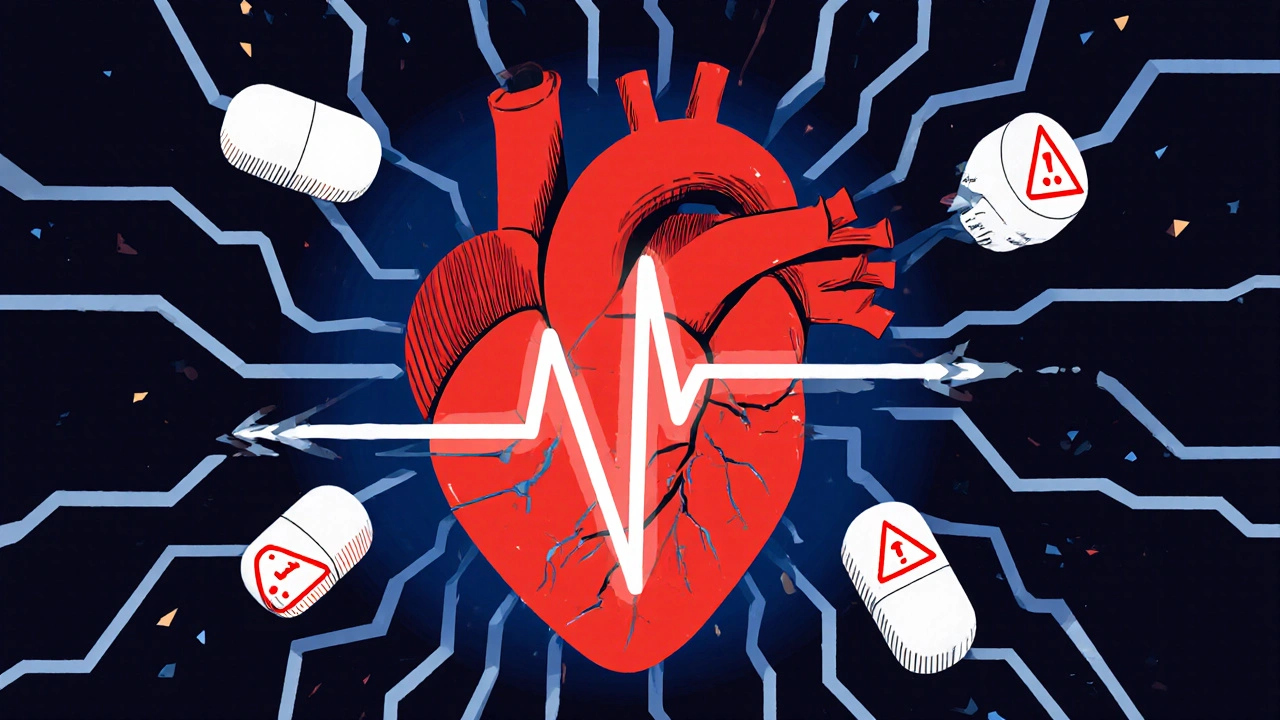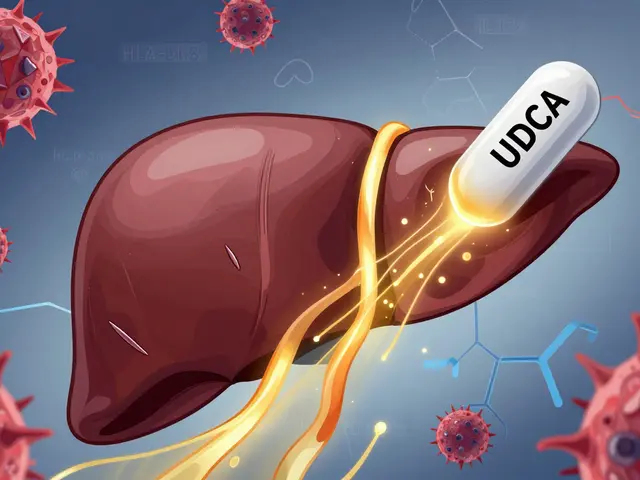ECG Monitoring: What It Is, Why It Matters, and What You Need to Know
When your doctor says you need an ECG monitoring, a non-invasive test that records the electrical signals of your heart to detect abnormal rhythms or damage. Also known as electrocardiogram, it’s one of the most common tools doctors use to check if your heart is sending the right signals. It’s not just for people with chest pain—it’s used during routine checkups, before surgery, or when you’re on meds that can mess with your heartbeat.
ECG monitoring doesn’t just show if your heart is racing or skipping beats. It reveals patterns that point to bigger problems—like a past heart attack, thickened heart muscle from high blood pressure, or electrolyte imbalances from diuretics. That’s why it’s tied to so many other health topics you’ll find here: QT prolongation, a dangerous lengthening of the heart’s electrical cycle that can trigger sudden cardiac arrest from drugs like citalopram, or drug interactions, like how statins and antifungals can cause muscle breakdown that shows up on ECG as abnormal signals. Even something as simple as swelling in your hands or feet can be a sign your heart isn’t pumping right—and ECG monitoring helps connect those dots.
It’s not just a one-time test. For people with pacemakers, history of arrhythmias, or those on long-term heart meds, continuous ECG monitoring can catch problems before they become emergencies. Wearable patches, even smartwatches with ECG features, are making this more common than ever. But don’t assume a normal reading means everything’s fine. Some heart issues only show up under stress, during sleep, or after taking certain meds. That’s why doctors often order longer-term monitoring or repeat tests.
What you’ll find in this collection isn’t just theory. These are real stories from people who needed ECG monitoring because of side effects from antibiotics, heart drugs, or even hormonal treatments. You’ll see how it ties into managing diabetes, avoiding dangerous drug combos, and understanding why your doctor ordered that test after you felt dizzy. No fluff. Just clear, practical info that helps you ask the right questions and understand what your heart is telling you.

QT Prolongation with Fluoroquinolones and Macrolides: Monitoring Strategies
Fluoroquinolones and macrolides can cause dangerous QT prolongation, leading to life-threatening arrhythmias. Learn who's at risk, which antibiotics are safest, and how to monitor with ECGs to prevent cardiac events.
read more




